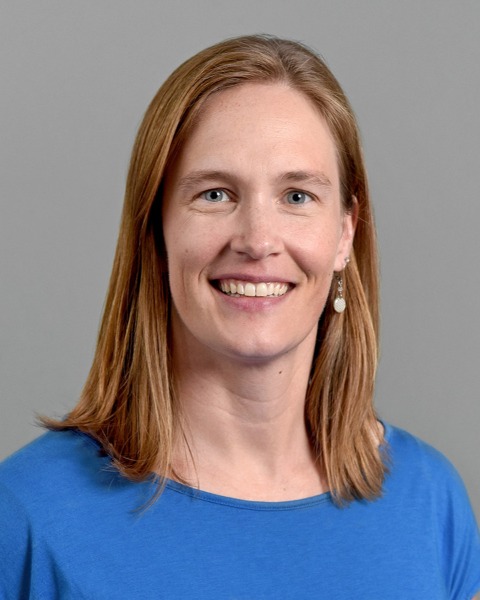Neural Engineering
Neuro-Therapeutics and Neuro-Regenerative Medicine
Leveraging biomaterial systems to address traumatic brain injury via regenerative medicine and nanotherapeutics
Saturday, October 14, 2023
8:00 AM - 8:30 AM PDT
Location: 341 (Center, Level 3)

Sarah Stabenfeldt, PhD (she/her/hers)
Professor
Arizona State University
Tempe, Arizona, United States
Presenting Author(s)
Introduction:: Over 1.7 million persons sustain a traumatic brain injury (TBI) in the U.S. alone. TBI is initiated by a mechanical injury and leads to a biochemical injury that is largely responsible for long-term functional and cognitive deficits. However, there are limited clinical therapeutic treatment options currently available for TBI patients where notably none address the underlying pathology and only alleviate secondary symptoms (i.e. edema, intracranial pressure, etc.).
Materials and Methods:: This keynote talk will focus on bioengineering approaches our lab is exploring to promote regeneration and or repair after TBI that ranges from nanoparticle-based systems to stem cell transplantation. Methods include in vivo mouse model of TBI and various intervention strategies to explore fundamental questions in regenerative medicine and nanoparticle delivery for TBI.
Results, Conclusions, and Discussions:: Results will focus on recent findings on nanoparticle approaches for treating TBI. Specifically, we developed novel microgel formulations to release chemokines in an MMP-sensitive response and developed a novel nanoparticle therapeutic strategy to address acute epigenetic modifications post-injury. In summary, a review of our lab's key finding in biomaterial approaches for TBI therapies will be highlighted.
Acknowledgements (Optional): :
References (Optional): :
Materials and Methods:: This keynote talk will focus on bioengineering approaches our lab is exploring to promote regeneration and or repair after TBI that ranges from nanoparticle-based systems to stem cell transplantation. Methods include in vivo mouse model of TBI and various intervention strategies to explore fundamental questions in regenerative medicine and nanoparticle delivery for TBI.
Results, Conclusions, and Discussions:: Results will focus on recent findings on nanoparticle approaches for treating TBI. Specifically, we developed novel microgel formulations to release chemokines in an MMP-sensitive response and developed a novel nanoparticle therapeutic strategy to address acute epigenetic modifications post-injury. In summary, a review of our lab's key finding in biomaterial approaches for TBI therapies will be highlighted.
Acknowledgements (Optional): :
References (Optional): :
